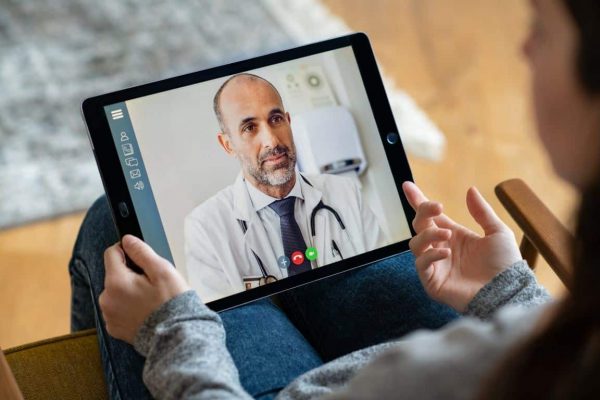
Implementing chronic care management programs in healthcare organizations has shown significant improvements in patient outcomes. These programs focus on providing comprehensive care to patients with chronic conditions. This ensures that they receive the necessary support and resources to manage their health effectively.
Telehealth programs play a crucial role in remote patient monitoring. They allow healthcare providers to track patients’ progress and intervene when necessary.
By leveraging telehealth technologies, healthcare organizations can conduct regular check-ins with patients. They can also assess their symptoms, and adjust treatment plans accordingly.
This proactive approach to managing chronic conditions helps:
One of the key factors contributing to improved patient outcomes is the close monitoring and early intervention made possible through telehealth. Patients are equipped with tools and devices to measure their vital signs at home. This allows healthcare providers to identify any subtle changes in health status.
By detecting warning signs early on, healthcare professionals can intervene promptly. This prevents the progression of the disease or the occurrence of severe complications.
In addition to remote patient monitoring, chronic care management programs often include educational components that empower patients to actively participate in their own care. Patients receive guidance on self-management techniques, medication adherence, and lifestyle adjustments.
These are also specific to their condition.
This holistic approach encourages patients to take control of their health and adopt behaviors that contribute to better outcomes.
Chronic care management (CCM) is an important practice for healthcare organizations as it improves access to support between visits and focuses on disease prevention and health maintenance. It enables policies and technologies that empower patients. They can then take a more active role in their own health.
They become more mindful of risk factors, interventions, and lifestyle choices necessary to maintain their health and well-being.
Patients have access to on-demand support, including data-driven healthcare insights, customized recommendations, and access to their healthcare professionals. This then helps encourage better compliance and self-care. Ultimately, CCM provides improved patient engagement, better disease outcomes, and cost savings for healthcare organizations.
Effective chronic care management programs also contribute to enhanced patient satisfaction. Patients with chronic conditions often require ongoing attention and guidance, and these programs ensure that their healthcare needs are met effectively. Through remote patient care services offered by telehealth programs, healthcare organizations can provide:
This level of support and responsiveness helps patients feel more involved in their care and supported throughout their healthcare journey. They appreciate the convenience of accessing healthcare services from the comfort of their homes. This is because it eliminates the need for frequent travel and long wait times.
Patients have greater peace of mind knowing that healthcare providers are closely monitoring their condition. They’re also readily available to address any issues or questions that arise.
Moreover, chronic care management programs enhance communication and collaboration between patients and healthcare providers. Telehealth platforms facilitate secure messaging, teleconferencing, and real-time data sharing, allowing patients to connect with their providers easily. This frequent and convenient communication helps build strong patient-provider relationships, fostering trust and engagement.
Studies have shown that patients enrolled in chronic care management programs have reported increased satisfaction with their overall healthcare experience. They feel more supported, empowered, and confident in managing their conditions, leading to better adherence to treatment plans and healthier lifestyle choices. As patient satisfaction improves, healthcare organizations also benefit from the following:
Chronic care management (CCM) is a critical component in maintaining accessible healthcare services for many health care organizations. CCM increases accessibility by providing care management services such as:
Patients who receive chronic care management services have greater access to care and more frequent contact with their providers. This access provides provides improved adherence to care plans, longer and more frequent follow-up visits and better management of chronic medical conditions.
Additionally, through CCM, health care organizations can provide increased access to specialty care for their patients with chronic conditions or risks of complications due to chronic conditions. These services can provide insight into available therapy options while providing additional education and support.
Furthermore, CCM can provide improved access to care for those living in rural or underserved communities. These people may not otherwise have access to quality care.
In conclusion, chronic care management programs in healthcare organizations offer numerous benefits. By leveraging telehealth technologies and providing remote patient care services, healthcare organizations can ensure that patients with chronic conditions receive the support and resources necessary.
These programs not only lead to better health outcomes for patients but also contribute to more efficient healthcare systems and stronger patient-provider relationships. Implementing chronic care management programs is a proactive approach toward delivering high-quality care. This is especially true in a rapidly evolving landscape.
Don’t miss the opportunity to provide better care for your remote patients. Contact us now to learn more about how BlueStar can help you execute remote patient care programs and improve patient outcomes.